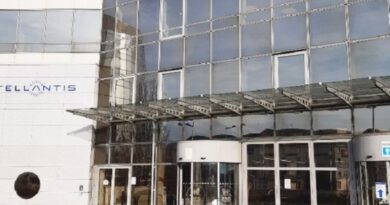VW commits $7.1 billion to North America, plans 25 EVs for U.S. by 2030
Volkswagen Group of America plans to spend at least $7.1 billion in North America through 2027 to build up its local EV production capacity — including construction of a battery plant as well as overhauls of its assembly plants in Puebla and Silao, Mexico — and bolster interim ICE-powered production as part of a push to regionalize its EV and ICE product decisions for the North American market.
The company aims to introduce more than 25 new battery electric vehicles through 2030 across the group’s brands that sell in the U.S.: VW, Audi, Porsche, Bentley and Lamborghini. But more importantly, it also plans to localize “all major design and engineering responsibilities” for top-hat development of EVs for North American consumers by 2030 — a move that could, in theory, allow VW to produce a midsize EV pickup for U.S. consumers, as well as other products.
“American ingenuity and manufacturing know-how are at the heart of our strategy for growth, and thousands of men and women are working hard every day throughout North America to bring the Volkswagen brand to life for consumers,” Scott Keogh, CEO of Volkswagen Group of America, said in a statement.
Keogh planned to speak to the media in a video conference call beginning at 11 a.m. EDT today. “This profound commitment to our localized capabilities will transform Volkswagen into one of the leading EV brands known for its commitment to innovation, quality, and the communities we call home.”
Keogh aims to push products that would allow the VW brand to capture 55 percent of its annual sales as EVs by 2030. Much of its future EV product lineup is already known: the ID4 compact crossover, which will begin local production at VW’s Chattanooga Assembly complex in the second half of 2022; the ID Buzz minivan, which will be imported from Europe beginning in 2024; a long-range EV sedan, called the ID Aero, in 2025, and EV versions of the Atlas and Atlas Cross Sport beginning in 2026.
VW will begin phasing out its sales of ICE-powered vehicles in North America after the turn of the decade, Keogh said.
Full details of the automaker’s spending plans weren’t revealed. For example, whether its planned increase in North American battery production would be done in-house or in partnership with a supplier. Battery maker SK Innovation built a battery plant in Georgia to supply VW’s initial EV assembly operations in Chattanooga.
In comments last week, Volkswagen Group CEO Herbert Diess said the world’s second-largest automaker planned an aggressive expansion of battery production to supply its EV ambitions.
However, “the group is currently assessing governance and finance models, and aims to finalize decisions through 2022,” regarding its battery plant aspirations in North America, the company said Monday. In May, VW will open a $22 billion battery engineering lab in Chattanooga to test and validate batteries used domestically.
Details of a full transition of its Mexico operations to EV production were also left undisclosed. The company said the overhauls of the group’s two Mexican plants is “for the assembly of electric vehicles and components [such as e-motors] by the middle of the decade.” Puebla currently assembles the VW Tiguan and Taos crossovers and the VW Jetta sedan, while Silao assembles the Audi Q5 crossover.
Source : Autonews.com




